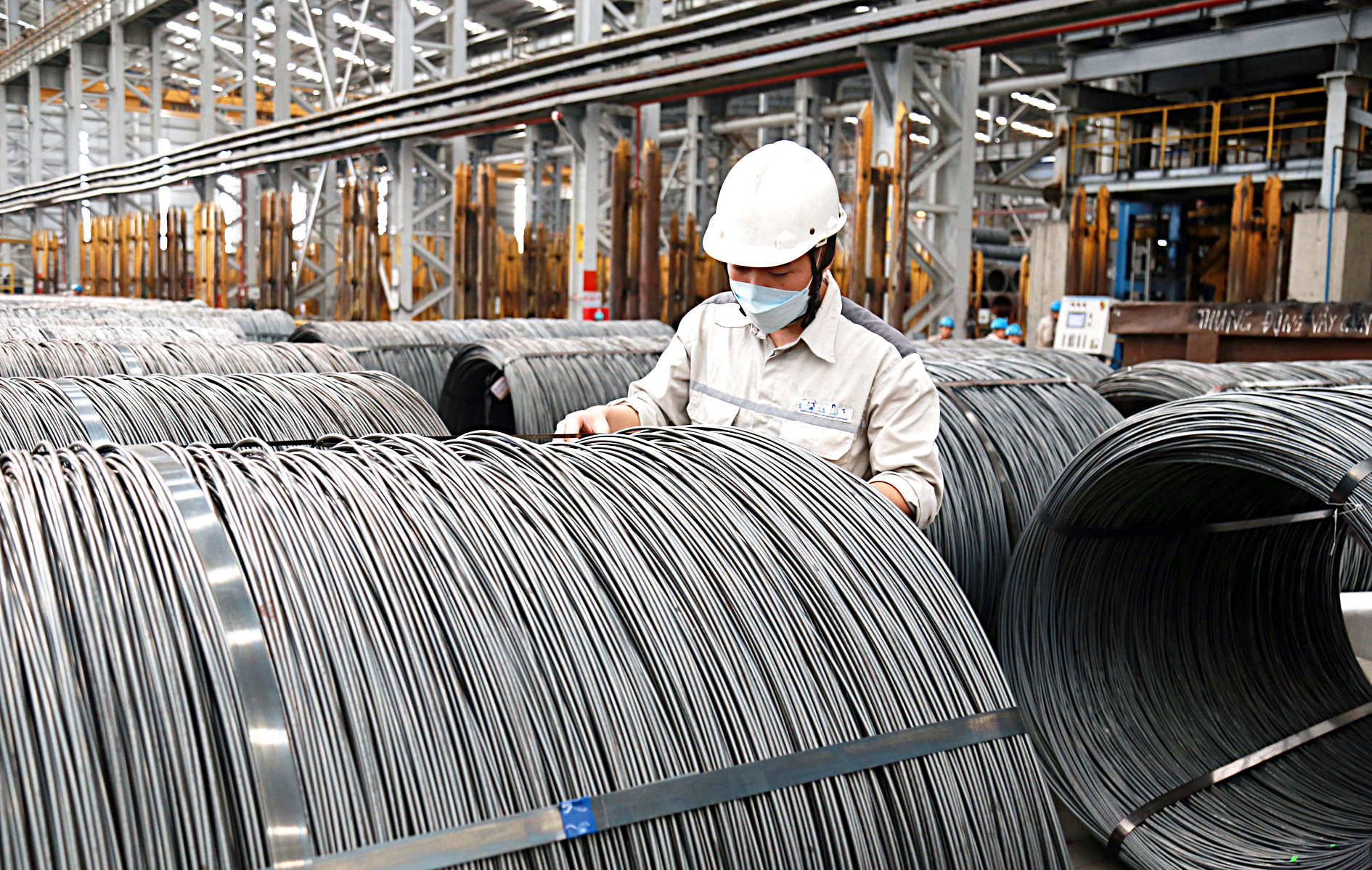The opening of markets and the elimination of tariffs through free trade agreements have enabled a surge of foreign steel products in the local market, yet Vietnam lacks technical barriers to safeguard its domestic production.
In Vietnam, companies such as Hoa Phat, Ton Hoa Sen, Ton Dong A, and several others engage in the production of a wide range of steel products to cater to both domestic consumption and export markets including the U.S., Europe, Canada, Japan, and South Korea.
The steel industry in Vietnam has a production capacity of approximately 29-30 million metric tons per year, surpassing the country’s domestic demand.
According to the Vietnam Steel Association (VSA), its member enterprises recorded the production of 11 million metric tons of finished steel in the first five months of 2023, indicating a decline of 21.8 percent compared to the same period last year.
The VSA report shows that steel sales in Vietnam during the same time frame was 10.4 million metric tons, down 19.3 percent compared to the corresponding period last year, despite 13 price reduction sessions since the beginning of the year.
Meanwhile, the VSA also reports a significant surge in Chinese steel imports into Vietnam, which exceeded 2.65 million metric tons, accounting for over 52 percent of the total steel import volume.
Vietnam’s steel imports amounted to five million metric tons, worth a substantial US$3.9 billion in January-May.
During a recent shareholders’ meeting, Tran Dinh Long, chairman of Hoa Phat Group, blamed the increased exports from China for exerting significant pressure on the domestic steel industry, resulting in numerous steel enterprises reducing their production levels.
As noted by Tuoi Tre (Youth) newspaper, several prominent steel companies have been compelled to halt operations on multiple furnaces, running at approximately 50 percent or even lower capacity.
VSA chairman Nghiem Xuan Da attributes the situation to Vietnam’s open policy toward foreign steel products, as the majority of imported steel products enter the country with zero-percent tariffs and trade remedies have been lifted.
In addition, Vietnam’s quality standards are relatively basic. The country continues to accept standards that are developed and published by the enterprises themselves.
Conversely, Vietnam’s steel exports to numerous countries face substantial tariffs and encounter barriers related to stringent technical standards.
For example, HRC steel produced by Vietnamese manufacturers and sold in the Thai market is subject to a tax exceeding 42 percent and cold rolled steel originating from Vietnam, utilizing hot rolled steel materials imported from Taiwan and South Korea and subsequently exported to the U.S., faces a tax of over 450 percent.
For comparison, the identical product imported from China into Vietnam is only subject to anti-dumping taxes, which range from 4.43 percent to 25.22 percent.
And to be exported to Indonesia, Vietnamese products must undergo certification in accordance with Indonesian National Standard (SNI), which includes a set of complicated criteria.
Per the observations of many Vietnamese businesses, the majority of countries concentrate on investing in and supporting steel enterprises to enhance their competitiveness.
For instance, China implements tax exemptions and refunds on alloy steel, steel coils, and other products to stimulate exports.
The U.S., EU, and South Korea reinforce trade remedies to protect their domestic steel industries.
For solutions, VSA chairman Da emphasizes the importance of establishing a process and set of procedures to inspect the quality of imported steel in Vietnam.
Accordingly, such imported steel should be accompanied by a certificate confirming its compliance with Vietnam’s quality standards.
Moreover, it is crucial to enhance the implementation of suitable trade remedies to mitigate unfair competition in the steel sector and safeguard the interests of domestic steel enterprises.
Furthermore, there is a need to develop national technical regulations as part of the overall approach.
Like us on Facebook or follow us on Twitter to get the latest news about Vietnam!

















































